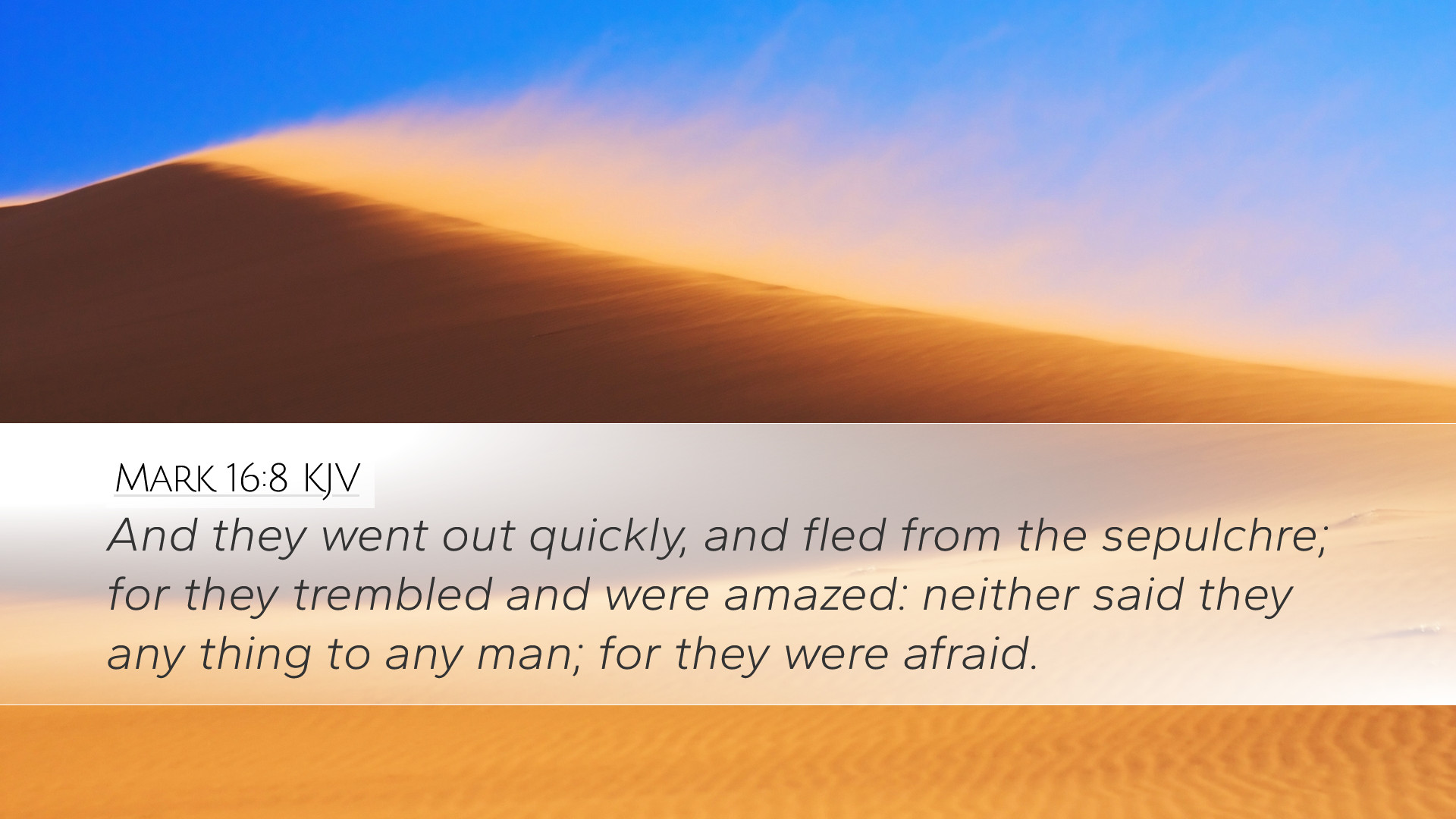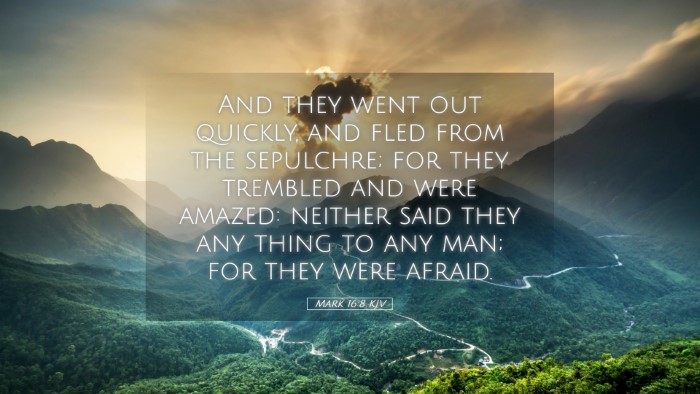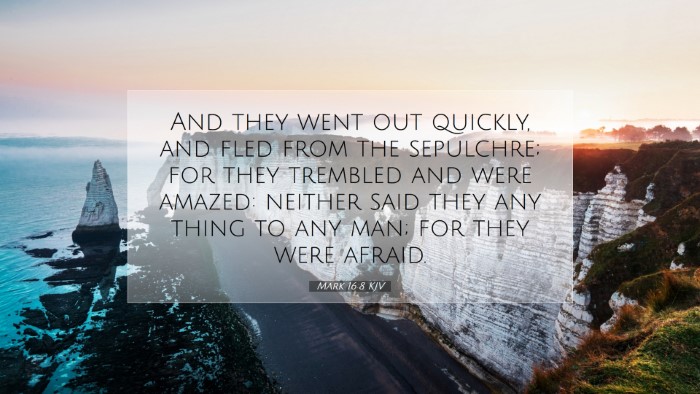Old Testament
Genesis Exodus Leviticus Numbers Deuteronomy Joshua Judges Ruth 1 Samuel 2 Samuel 1 Kings 2 Kings 1 Chronicles 2 Chronicles Ezra Nehemiah Esther Job Psalms Proverbs Ecclesiastes Song of Solomon Isaiah Jeremiah Lamentations Ezekiel Daniel Hosea Joel Amos Obadiah Jonah Micah Nahum Habakkuk Zephaniah Haggai Zechariah MalachiMark 16:8
Mark 16:8 KJV
And they went out quickly, and fled from the sepulchre; for they trembled and were amazed: neither said they any thing to any man; for they were afraid.
Mark 16:8 Bible Commentary
Commentary on Mark 16:8
Verse Text: "And they went out quickly, and fled from the sepulchre; for they trembled and were amazed: neither said they any thing to any man; for they were afraid."
Introduction
This passage from Mark 16:8 closes the Gospel of Mark with a profound moment of fear and awe experienced by the women at the tomb. In this commentary, insights from various public domain sources will illuminate the theological significance and implications of this verse.
Contextual Background
The Gospel of Mark is noted for its brevity and its emphasis on action. The tentatively structured resurrection account here represents a climactic moment in the narrative. Following the crucifixion of Jesus, the women arrive at the tomb to anoint His body, only to discover it empty, heralding the pivotal moment of resurrection.
Analysis of Key Phrases
-
"went out quickly"
This phrase indicates urgency. Matthew Henry suggests that their quick departure illustrates a powerful response to the angelic message of resurrection. The immediacy underscores the importance of their commission to spread the news.
-
"fled from the sepulchre"
Albert Barnes notes that their flight signifies both a physical and emotional distance from death's domain. The fear felt here transitions from despair to the reality of resurrection, highlighting a transformation within the narrative.
-
"trembled and were amazed"
Adam Clarke describes this reaction as a common response to divine encounters. Their trembling reflects both fear and reverence, reminding readers that the resurrection is a moment of divine power and mystery, evoking awe among those who witness it.
-
"neither said they any thing to any man"
This silence is notable. Matthew Henry posits that their fear momentarily hindered their ability to proclaim the news, illustrating the overwhelming nature of the event. It also serves as a literary device to build anticipation for the victory of the resurrection.
-
"for they were afraid"
The fear experienced by the women may be seen as part of their journey. Barnes emphasizes that this fear is not simply fear of danger but a reverential awe in the presence of God’s act of resurrection, which later transforms into the proclamation of hope and joy.
Theological Implications
This passage opens up several theological themes worthy of exploration:
-
Fear and Faith
The juxtaposition of fear and the call to faith is a recurring theme throughout the Scriptures. Here, the women's initial fear transforms into a call to witness the resurrection, reflecting the journey of faith that often begins in uncertainty.
-
Witnessing the Resurrection
The role of women as the first witnesses to the resurrection underscores the inclusive nature of the Gospel. Adam Clarke highlights that their encounter signifies the breaking down of cultural barriers, with women being entrusted with spreading the news of Christ's victory.
-
The Unexpectedness of God's Work
The resurrection is a divine surprise that challenges human expectations. Henry interprets this event as a reminder that God operates in ways that often leave humanity in awe, breaking through the confinements of expectation and understanding.
-
The Significance of the Empty Tomb
As one of the central tenets of Christian faith, the empty tomb represents hope and assurance of eternal life. Barnes discusses how this moment transitions the focus from death to life, encouraging believers to reflect on the implications of Christ’s victory over sin and death.
Conclusion
Mark 16:8 encapsulates a critical moment of the resurrection narrative that holds profound meaning for believers. The women's fear and amazement serve as a reminder of the divine nature of Christ’s resurrection and the transformational power it possesses for all of humanity. Drawing upon the insights from respected commentators, it becomes clear that this passage not only concludes Mark's Gospel but also propels the reader into a deeper understanding of the implications of the resurrection for faith, witness, and the hope offered to the world.


